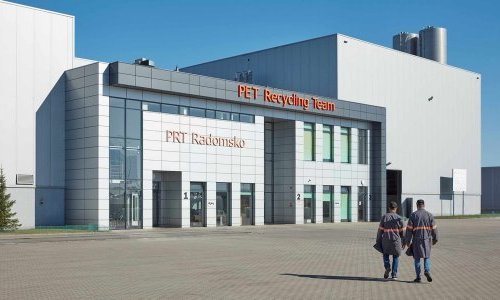Avery Dennison’s report "The Missing Billions: The Real Cost of Supply Chain Waste" reveals that more than 10% of beauty products worth an estimated $4.8 billion are wasted in supply chains.
6.2% of goods thrown away are the result of overproduction while 4% of inventory is thrown away due to spoilage or deterioration of the merchandise. Unsurprisingly, this is a growing concern for brands, which could be losing up to 2.8% of their annual profits.
The other weighty consideration is the environmental impact of cosmetic waste related to shampoos, lotions, deodorants and other body care products. Today, plastic is responsible for more than 120 billion units of packaging produced each year by the cosmetics industry, the vast majority of which cannot be recycled. According to an OECD report, only 9% of plastic waste is recycled worldwide. This rate is expected to reach 17% by 2060.
According to Avery Dennison’s survey of 60 cosmetics companies in the U.S., U.K., China, France and Japan, 23% of brands’ environmental impact comes from their supply chain activities.
More than three-quarters (77%) of respondents currently track waste in their supply chain. However, 18% cited a lack of visibility and transparency between trading partners as the biggest barrier to their supply chain resilience.
Using RFID technology is a solution that helps brands reduce supply chain waste. It creates a unique digital identity for each product and connects the physical with the digital. It provides valuable information that enables consumers to make better decisions, including transparency and carbon footprint.
Recent technology developments leave RFID better suited for tagging small items, as well as those containing liquids and with metallic branding embellishments.
Item-level RFID provides an added level of authenticity and traceability throughout a product’s entire journey: from factory to shelf and beyond. It can help identify packaging and contents more easily for recycling schemes or inform the consumer that, for example, no unsustainable palm oil was used.
The atma.io connected product cloud helps brands achieve their zero waste goals throughout the supply chain. Currently, more than 28 billion items are managed by the atma.io platform across the apparel, retail, food and healthcare sectors.
atma.io’s Real-time Carbon Impact Analytics tool also provides brands with data-driven insights regarding the carbon footprint of their products, including Scope 3 emissions and beyond. This is a powerful new tool that captures data from every stage of a product’s journey, from raw material to consumer, and can help firms as they work to comply with forthcoming EU ‘Digital Product Passport’ regulations.
The atma.io Real-time Waste Elimination Tool uses artificial intelligence and machine learning to analyze and alert on anomalies and inefficiencies across the supply chain. This includes information about the overdue movement of products at a pallet level or even isolated individual items within a warehouse that are close to perishing or otherwise ‘lost’. These features help ensure action can be taken quickly and proactively in order to improve the efficiency of brands’ supply chains, minimize product loss and provide adequate stock to meet customer demands.
It provides customers with access to a source of single truth, where a product’s origins and entire journey can be chronicled and made available to brands, retailers, and consumers and has the ability to manage emissions and highlight their sustainability directly in the connected product cloud.
This versatile technology helps find relevant solutions to reduce waste and overproduction. By leveraging these digital ID solutions, brands can ensure better inventory visibility, increased sustainability and improved profitability.























